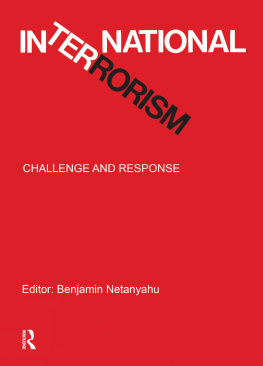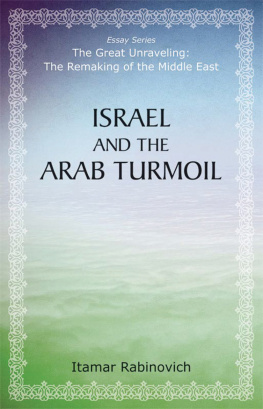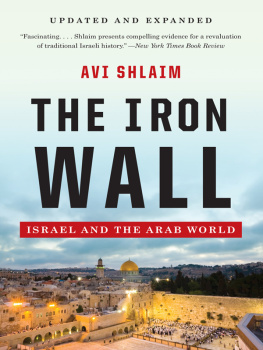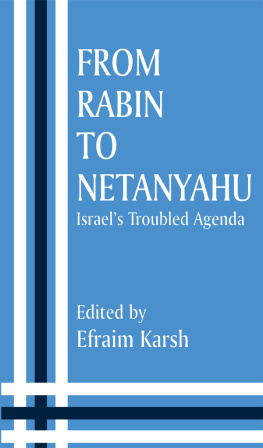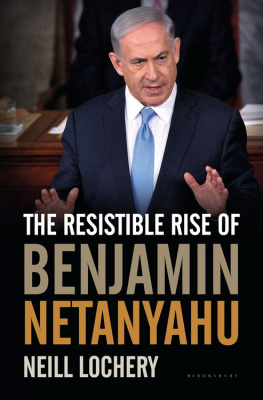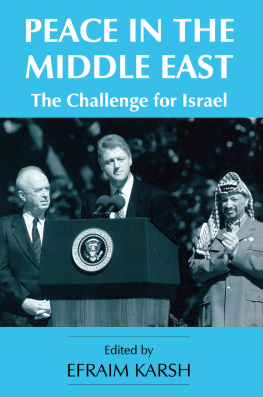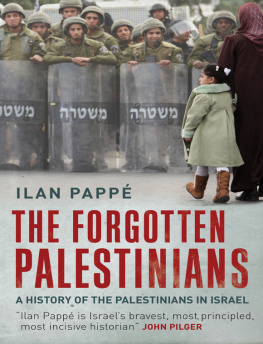Benjamin Netanyahu - A Durable Peace: Israel and its Place Among the Nations
Here you can read online Benjamin Netanyahu - A Durable Peace: Israel and its Place Among the Nations full text of the book (entire story) in english for free. Download pdf and epub, get meaning, cover and reviews about this ebook. year: 2000, publisher: Grand Central Publishing, genre: Politics. Description of the work, (preface) as well as reviews are available. Best literature library LitArk.com created for fans of good reading and offers a wide selection of genres:
Romance novel
Science fiction
Adventure
Detective
Science
History
Home and family
Prose
Art
Politics
Computer
Non-fiction
Religion
Business
Children
Humor
Choose a favorite category and find really read worthwhile books. Enjoy immersion in the world of imagination, feel the emotions of the characters or learn something new for yourself, make an fascinating discovery.

- Book:A Durable Peace: Israel and its Place Among the Nations
- Author:
- Publisher:Grand Central Publishing
- Genre:
- Year:2000
- Rating:5 / 5
- Favourites:Add to favourites
- Your mark:
- 100
- 1
- 2
- 3
- 4
- 5
A Durable Peace: Israel and its Place Among the Nations: summary, description and annotation
We offer to read an annotation, description, summary or preface (depends on what the author of the book "A Durable Peace: Israel and its Place Among the Nations" wrote himself). If you haven't found the necessary information about the book — write in the comments, we will try to find it.
A Durable Peace: Israel and its Place Among the Nations — read online for free the complete book (whole text) full work
Below is the text of the book, divided by pages. System saving the place of the last page read, allows you to conveniently read the book "A Durable Peace: Israel and its Place Among the Nations" online for free, without having to search again every time where you left off. Put a bookmark, and you can go to the page where you finished reading at any time.
Font size:
Interval:
Bookmark:
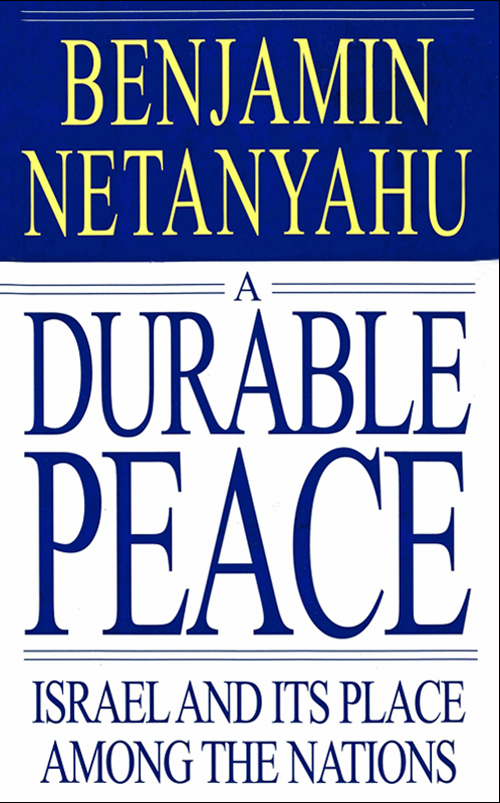
is printed by permission of Naomi Shemer
Warner Books Edition
Copyright 1993, 2000 by Benjamin Netanyahu
All rights reserved.
Warner Books, Inc.,
Hachette Book Group
237 Park Avenue,
New York, NY 10017
Visit our website at www.HachetteBookGroup.com
First eBook Edition: October 2009
ISBN: 978-0-446-56476-2
BOOKS EDITED BY BENJAMIN NETANYAHU
International Terrorism: Challenge and Response
Terrorism: How the West Can Win
Self-Portrait of a Hero: The Letters of Jonathan Netanyahu (with Iddo Netanyahu)
BOOKS WRITTEN BY BENJAMIN NETANYAHU
Fighting Terrorism
I grieve for thee, my brother Jonathan;
A great comfort hast thou been to me.
Thy love to me was wonderful.
II SAMUEL 1:26

W riting anything while you are still in office is a hazardous task. Writing anything after leaving office can be equally hazardous. For one is supposed to have the perspective of detachment and introspection to secure the desired objectivity. I profess at the outset: While I have done a great deal of thinking since leaving office, I am neither detached nor objective when it comes to securing the future of the Jewish state. In fact, I plead unabashed and passionate partisanship in seeking to assure the Jewish future. This is the conviction that guided me as the Prime Minister of Israel between 1996 and 1999, and this is the conviction that will guide me for the rest of my life.
The historical imperative of preserving the Jewish state was reinforced on a visit to China in 1999. The President of China, Jiang Zemin, expressed to me his great admiration for the legacy of the Jewish people, who produced such geniuses as Albert Einstein. The Jewish people and the Chinese people are two of the oldest civilizations on earth, he said, dating back four thousand and five thousand years respectively.
I concurred, adding India to the list.
But there are one or two differences between us, I said. For instance, how many Chinese are there?
1.2 billion, replied Zian Zemin.
How many Indians are there? I pressed on.
About 1 billion.
Now how many Jews are there? I queried.
No answer.
There are 12 million Jews in the world, I said.
Several Chinese jaws dropped in the room, understandably, given that this number could be contained in an enlarged suburb of Beijing.
Mr. President, I said, since the Jews have been around for thousands of years that is a remarkably low number. Two thousand years ago the Jews constituted ten percent of the population of the Roman Empire. Today there should have been 200 million Jews.
What happened? asked the Chinese president.
Many things happened, I replied. But they all boil down to one big thing. You, the Chinese, kept China; the Indians kept India; but we Jews lost our land and were dispersed to the four corners of the earth. From this sprang all our calamities, culminating in our greatest catastrophe in the twentieth century. This is why for the last two thousand years we have been trying to retrieve our homeland and re-create our independent state there.
I was trying to impress upon the Chinese leadership the importance of refraining from supplying Iran with nuclear weapons technology. That would jeopardize not merely the modem State of Israel but threaten to wipe out forever an ancient and admired civilization. (Jiang Zemin assured me that China was not selling such technology to Iran, something I verified with our intelligence just in case.)
This, then, is the perspective that guided me as Israels Prime Minister and that ought to guide anyone concerned with the future of the Jewish State: assuring that the people of Israel have what they need to survive and thrive in the next millennium, the fifth of their existence. I am convinced of one thing: The Jewish people will not get another chance. There are only so many miracles that history can provide a people, and the Jews have had more than their share. After unparalleled adversity the Jews came back to life in the modern State of Israel. For better or worse, the Jewish future is centered on the future of that state. Therefore we must be extra careful not to toy with Israels security or jeopardize its defenses, even as we pursue peace with our neighbors, for what is at stake is the destiny of an entire people.
In the long run, what will stand are not the passing praises of those who seek a quick fix for the Middle Easts problems, but the bulwarks of a durable peaceone that can be credibly defended by a strong Israel. Any other kind of peace will not last. Achieving peace treaties with the Arabs is relatively easy. All you have to do is give in to the Arab demands. Achieving peace agreements that will stand the test of time is much harder to do.
This is what I set out to achieve as Prime Minister. I insisted on a secure peace, stressing the fundamental principle that in the Middle East peace and security are intertwined. A peace that undermines Israels defenses and leaves unresolved central issues, such as the fate of Jerusalem and the Arab refugees, is one that is sure to crumble over time. It should be passed over until a more sustainable, more realistic peace is achieved.
This stubbornness in defense of a tough-minded peace did not make me, nor would it make any leader of Israel, popular in the diplomatic and press salons of the world. But it is the right policy and it is worth fighting for. If one possesses a millennial perspective, the slings and arrows of criticism are meaningless compared to the awesome responsibility of protecting the Jewish people and their one and only state.
I am confident that such persistence will pay off. The Jewish people have shown a remarkable capacity to overcome hardship, and surely they have the will and intelligence to pursue a genuine peace. The second half of the twentieth century offers indubitable proof of this.

Neither the present nor the future are free of problems. But they pale compared to those that faced the Jewish people in the ghettos of Europe just a few decades ago. This tells us how far the Jewish people have traveled and it fires our imagination and infuses us with hope as we begin the next fifty years.
This was the central fact of Jewish existence as Israel celebrated its first half-century. In the ancient Jewish traditions, jubilees were a time for both celebration and reflection. Indeed, there is much to celebrate. Half a century ago, at the close of World War II, it was not clear at all that the Jewish people would survive. A third of all Jews were consumed in the fires of the Holocaust, and the remaining two-thirds faced the dual threat of persecution and relentless assimilation. Stalin targeted the Jews of the Soviet Union as class enemies, and the Jews of America and Europe were rapidly embracing assimilation and intermarriage. Absent a vital center, Jewish numbers would have shrunk further, and the Jewish people, after four millennia of unparalleled struggle for their place under the sun, would have finally yielded to the forces of history and disappeared.
This has not happened. The pivotal change in Jewish destiny occurred with the founding of the Jewish state. This seminal event of reestablishing Jewish sovereignty in the ancient Jewish homeland was preceded by nearly a hundred years of renewed Jewish settlement activity in the Holy Land and by over fifty years of Zionist agitation, heralded by the prophetic and inspired genius of Theodor Herzl. Indeed, the Jewish state changed everything for the Jewish people. From a fledgling beachhead on the Mediterranean coast, struggling to survive the Arab onslaughts aimed at exterminating the Jewish presence in the land, the Jews were able to repel the attack; build a state; create one of the worlds finest armies; defeat the much larger Arab forces in successive wars forced on Israel; unite their ancient capital, Jerusalem; bring in millions of immigrants and refugees, including a million beleaguered Jews from the former Soviet Union and the imperiled Jewish community of Ethiopia; revive an ancient language; build an astonishing scientific and technological capability; develop the most thriving economy in the Middle East, and one of the most advanced in the world; create a vibrant cultural life, which includes some of the leading artists and musicians of the world; and maintain a staunchly democratic ethos amidst a sea of despotic regimes.
Font size:
Interval:
Bookmark:
Similar books «A Durable Peace: Israel and its Place Among the Nations»
Look at similar books to A Durable Peace: Israel and its Place Among the Nations. We have selected literature similar in name and meaning in the hope of providing readers with more options to find new, interesting, not yet read works.
Discussion, reviews of the book A Durable Peace: Israel and its Place Among the Nations and just readers' own opinions. Leave your comments, write what you think about the work, its meaning or the main characters. Specify what exactly you liked and what you didn't like, and why you think so.


